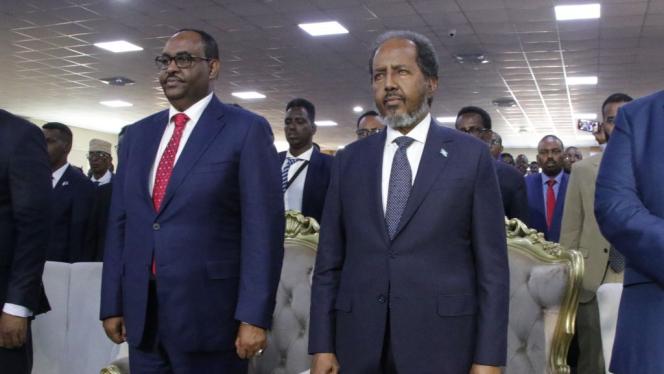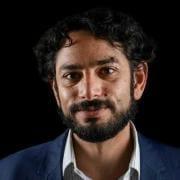Tuesday 19 November 2024
What Puntland’s recent election tells us about the prospects for a universal suffrage vote

The ideal of 1P1V elections has become intertwined with the personal ambitions of political leaders in Somalia who view it as a method to retain power, warns Omar Mahmood
In early January, Said Deni became the first president in Puntland’s history to retain the presidency when he was re-elected by a historic margin. On 25th January, he was inaugurated president once more, granting him a five-year mandate to continue his political program until 2029.
The election, however, was held indirectly, despite Deni’s wishes to go directly to part of the electorate. The opposition alleged that he was attempting to place his thumb on the scale to ensure his re-election, whilst he insisted the move would help democratise Puntland.
Omar Mahmood, a senior analyst with the International Crisis Group, who has worked on the Horn of Africa region for over a decade, breaks down the election and its implications for democratisation in Puntland and beyond. His recent report can be found here.
How does the exclusion of the public from decision-making processes in Puntland impact the perceived legitimacy of the government among its citizens, and what measures can be taken to address this legitimacy deficit?
This is an issue across Somalia, not just Puntland, given narrow leadership selection processes. Governments have also struggled to demonstrate their relevance to local populations, in part because of this. In Puntland, the government made progress at the district level, by overseeing direct elections for councillors in most of the state’s districts. That provides momentum and a degree of legitimacy at the local level. The challenge will be now ensuring this continues at the state-level – Puntland has plenty of time to properly prepare the ground for the next round of elections in 2029 through a one-person, one-vote process.
What steps can Puntland take to build democratic institutions that foster inclusivity and transparency, particularly considering the challenges posed by the clan-based model and the potential resistance from entrenched elites?
Shifting electoral models implies a shift in power balances. This is a delicate subject that takes time and proper engagement to address. An open and consultative process thus has more chances of success than a closed, rushed or heavy-handed one. In Puntland, that means reflecting on the reasons why the push for 1P1V at the state level fell short in 2023, and how that can be addressed going forward. This requires careful engagement with entrenched political stakeholders to generate buy-in for change – a challenging but not impossible task. There is the benefit of time, but that must be used wisely now rather than rushing at the last minute.
If holding 1P1V elections pose such a serious threat to security as we saw in Mogadishu in 2022 and Puntland in January, why do successive leaders keep attempting to keep conducting them despite push back?
Part of the issue is that the ideal of 1P1V elections has become intertwined with the personal ambitions of political leaders in Somalia. In other words, rather than advocating for 1P1V on principle as a means of bringing the public into the system, some leaders have pursued this more because they see it as the best route for re-election. It has also become a tactic to cling to the idea of 1P1V past the point where it is feasible to organise a timely vote, as a means of obtaining extensions in office. In this sense, one of the main challenges has been balancing individual aspirations with greater public interest.
Do you think this is primarily due to institutional constraints and a lack of elite buy in, or is it worth exploring more creative and novel ways to develop accountable institutions which empower a larger segment of the public to take part?
In large part the pursuit of 1P1V in Somalia has struggled given the close association with individual political interests. The lack of developed institutions, such as a strong judiciary or capable parliament, contributes to this however, given these institutions are easily manipulated. The idea of a more bottom up than top-down process might have some merit. In this case, start with empowering communities to select their district representatives, and over time move to selecting state and national leadership through a similar process. This gives the chance for the practice of democracy to be installed – we saw even in the Puntland district council votes, much more awareness over citizens’ rights and the voting process is still needed. It also provides the opportunity for an immediate dividend connected to voting, via change at the district level. But like any process, in order to be successful at the district level, voting must be free of interference from the state or national level to allow the public to be empowered. Failure to guarantee that will result in another manipulated cycle, and quickly lose public interest yet again.
What are some crucial lessons that would-be democratisers in Somalia can glean from Puntland's abortive attempt to hold 1P1V elections? If there is a parable there what would that be?
Preparing the ground politically is as important, if not more so, than the technical work. Shifting models implies shifting power bases – getting buy-in is a time intensive process. Those who oppose may be seen as anti-democratic in a sense, but it is also incumbent on governments to manage change while preserving stability. The other point that will aid this is if governments are being seen as organizing new election modalities in a fair and consultative manner.
The more heavy-handed they are in this vein, the more likely opposition actors will see the new rules of the game slanted against them, and protest as a result. The process only works if it is truly open or at least open enough – instituting 1P1V but through a controlled process does little to advance democratization in Somalia. In this sense, settling on electoral models are almost as important as the election themselves – so arriving at an inclusive result around the models will pave the way for a smoother election.
Said Deni has a full in-tray as he begins his second term. Two big issues are relations with the federal government and relations with the SSC-Khaatumo interim administration. What are the stakes for him in both?
There are significant stakes as both relationships can determine the future of Puntland’s trajectory. SSC-Khaatumo's path is unclear – they have received interim status from the federal government which signifies their intention to form their own member state free from both Somaliland and Puntland administrations, but there are many hurdles still to get there. How that progresses will influence their relationship with Puntland, which has played a supporting role, but at the same time Garowe would have reduced size and thus influence in the wider Somali federation if that comes to pass.
With regards to the federal relationship, this has been on ice for over a year now and little suggests a breakthrough is in the works. Yet both sides suffer – Puntland right now is not receiving development support through the form of World Bank or other projects, while Somalia is struggling to see through other reforms, such as a review of the provisional constitution, absent the full participation of all member states. There are fundamental issues about the nature of the federal model that must be sorted out between Mogadishu and Garowe in order for Somalia’s governance system to function more effectively and get over the hump of recurrent on-and-off again relations. But without the sides talking, it is impossible to get there, allowing the status quo to continue indefinitely.






